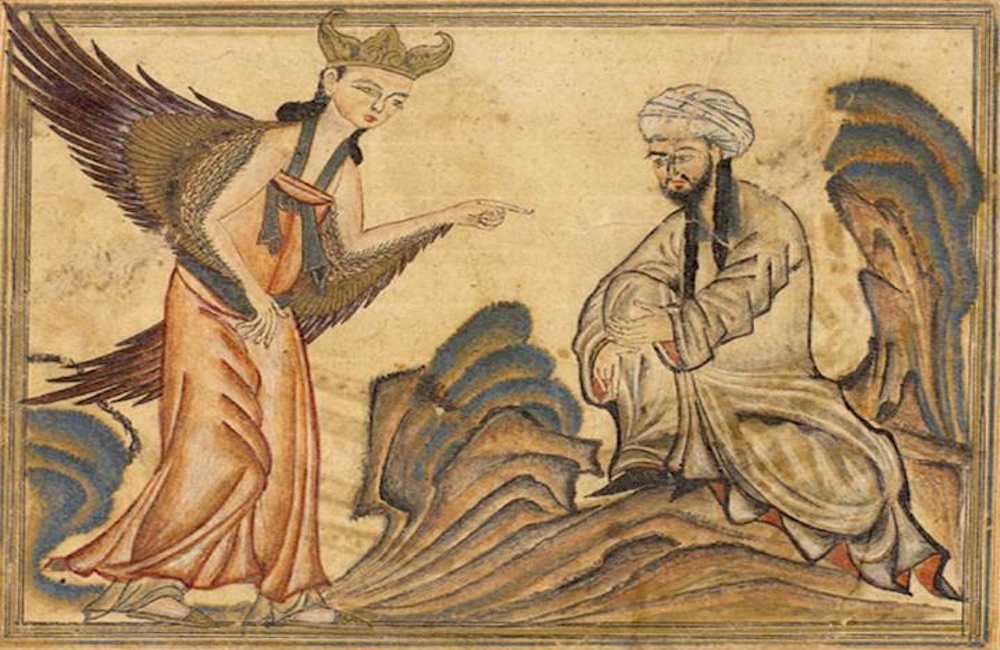Islam, one of the major world religions, is fundamentally based on the testimony of Muhammad’s encounter with the angel Gabriel. This singular event is considered the cornerstone of Islamic belief and practice, as it marks the beginning of what Muslims regard as the final and complete revelation from God. However, this reliance on a single testimony presents significant issues when examined in the context of historical norms and religious regulations, particularly those observed in the ancient world and within Islamic jurisprudence itself.
Historical Norms and the Requirement for Multiple Witnesses
In the ancient world, particularly within Jewish tradition, the credibility of a testimony was not established through a single account. Instead, the requirement for multiple witnesses was a fundamental principle. This practice is rooted in the Torah, which stipulates that in legal matters, the testimony of at least two or three witnesses was necessary to establish the truth. This principle aimed to ensure the reliability and veracity of claims, avoiding the potential for false or misleading information.
For example, in Jewish law, the requirement for multiple witnesses is clear in the Torah. In Deuteronomy 19:15, it is stated: “One witness shall not rise against a man concerning any iniquity or any sin that he commits; by the mouth of two or three witnesses the matter shall be established.” This practice reflects a deep-seated cultural and legal emphasis on corroboration to validate significant claims.
Jesus’ Testimony, Prophecies, and Miracles
In the Christian tradition, the validation of Jesus’ claims is supported not only by his own testimony but also by prophetic predictions and confirmation from others. Jesus’ identity as the Son of God was foretold in numerous Old Testament prophecies. For example, prophecies about the Messiah in Isaiah and other books provided a framework that Jesus is seen as fulfilling. These prophecies added a layer of context and validation to Jesus’ mission.
Additionally, John the Baptist played a crucial role in affirming Jesus’ divine status. According to the Gospels, John, who was himself a significant prophetic figure, recognized and declared Jesus as the Son of God. In John 1:34, John the Baptist testifies, “I have seen and I testify that this is God’s Chosen One.” This acknowledgment by a respected prophet further reinforced the credibility of Jesus’ claims.
Jesus also emphasized that his miracles were a form of testimony to his divine authority. In John 5:36, he states, “But the testimony that I have is greater than that of John. For the works that the Father has given me to accomplish—the very works that I am doing—testify that the Father has sent me.” The miracles performed by Jesus were intended to provide corroborative evidence of his divine mission, aligning with the principle that multiple forms of testimony (both verbal and demonstrative) were necessary to substantiate claims.
Islamic Jurisprudence and the Principle of Multiple Witnesses
Interestingly, Islamic law also upholds the principle of requiring multiple witnesses. In many aspects of Islamic jurisprudence, particularly in legal cases such as accusations of adultery or theft, the testimony of at least two or more witnesses is required to establish the truth. This practice underscores the importance of corroboration in validating claims within the Islamic legal framework.
The Quran itself reflects this principle, as seen in verses related to legal testimony and the need for multiple witnesses. For instance, Surah An-Nur (24:4) emphasizes that allegations of adultery require the testimony of four witnesses to be proven.
The Contradiction in Islam’s Foundation
The reliance on Muhammad’s singular encounter with Gabriel raises a fundamental contradiction when viewed against both historical practices and Islamic legal principles. Unlike other ancient traditions and even Islamic law, which emphasize the need for multiple witnesses, the foundational narrative of Islam is based on the testimony of a single individual.
This discrepancy presents a significant challenge to the credibility of Islam’s foundation. The absence of corroborative witnesses in Muhammad’s initial encounter contrasts sharply with the stringent requirements for validating testimony in Jewish tradition and the procedural norms within Islamic law itself.
Conclusion
The foundation of Islam, based on Muhammad’s single testimony of meeting the angel Gabriel, presents a notable departure from historical norms that demanded multiple witnesses to substantiate significant claims. Jewish tradition, Christian teachings, and Islamic legal principles all emphasize the importance of corroboration to ensure the reliability of testimony. In contrast, Jesus’ claims were supported by prophetic predictions and miraculous works, and were affirmed by John the Baptist. The reliance on a singular prophetic experience in Islam introduces a critical inconsistency when compared to these well-established practices. This contradiction highlights a potential flaw in the foundational narrative of Islam and suggests a need for reconsideration of the criteria for validating such religious claims.
